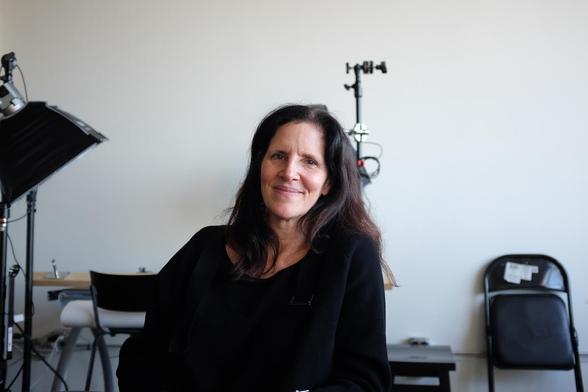2026-02-28 10:20:01
As salty as I am about it, there's also another way to think about this. For anyone who still has connections to folks on the right (which is perhaps unlikely for anyone on this server, I digress), the cult that has consumed them thrives on isolation and grievance.
The words "you were right" have the potential to cut through the programming and open up an opportunity for reconnection. The modern conspiratorial cult of the Right has been built partially around people who were told they were wrong or were crazy. In the vast majority of cases, they were wrong and even when they were right they completely misunderstood why, but we'll skip that for now. Liberals making fun of them (even the times when they definitely earned it) has pushed them further and further into their ideological hole.
The thing about those words, "you were right," in this context is that the way they offer reconnection also requires them to take one little step of betraying their ideology to accept them. So they must choose between maintaining allegiance to a pedophile or finally getting to feel superior after years of living in an illusion of persecution.
Under the ideology of the Right, admitting one is wrong is a weakness. It is admitting defeat. They have to "own the libs" by saying things, things that they know aren't true, in order to feel dominant. But these things are often so absurd that they end up being made fun of, feeling even more weak and pathetic, reinforcing their fear and alienation.
Offering what they're looking for can offer a way out, but only if they're willing to start to recognize the thing they've supported for what it is.
And they were right about some things. They were right that Bill Gates was a terrible person. I've had plenty of liberals defend him based on his philanthropy washing, but he's awful and always has been. The Epstein links make that blatant. They intuitively recognized him and didn't trust him, even if they were wildly off base about *how and why* he shouldn't be trusted... Even if their correct mistrust was leveraged into one of the most destructive conspiracy theories ever (vaccine denial and COVID vaccine avoidance).
They were right about Bill Clinton. He was always shady as fuck. Sure, the people who attacked him at the time turned out to be even more shady but that's not the point right now. He was connected to Epstein and that was always creepy as fuck.
And the Epstein thing was an open secret that liberals ignored for a long time. It was seen as some weird thing that right wing nutjobs believed about the Clintons. But it was true. Not all of it, and there has always been an antisemitic element to the right wing interpretation or Epstein stuff, but his whole pedophile conspiracy was always kind of real.
The whole "Illuminati"/deep state thing is a vast oversimplification, an attempt to make comprehensible an incredibly complex set of interlocking and emergent behaviors. But Epstein did very much want to remake the world, to create a new world order, and he absolutely played a part in it.
The Right wing nutjobs talked about global authoritarianism, Blackhawks flying over American cities, masked men with guns disarming and executing legal gun owners in the streets. That's all happening right now.
The "FEMA concentration camps" are not actually that far off. ICE and FEMA are sister agencies, both under DHS. I'd be more than happy to call that one "close enough" in order to hear some MAGA admit that ICE is, in fact, building concentration camps.
There was always a huge millennialist element to these things. They tended to be connected to "the antichrist." It was absurd, especially for me as someone who no longer identifies as a Christian. But I'll even acquiess that to a degree. The "the number of the Beast" is 666. That's just the sum of the Hebrew spelling of "Nero." Revelations focuses a lot on Nero coming back to life after his death. His death that involved a head wound, thus the line from Revelation 13:3:
> And I saw one of his heads as if it had been mortally wounded, and his deadly wound was healed. And all the world marveled and followed the beast.
The parallels between Trump and Nero are easy to draw, and Trump's ear wound feels pretty on-the-nose for this. I don't believe in "prophecy" in this way. I think that there are patterns, and useful patterns can become encoded in beleif systems. But I will, again, happily call this one "close enough" for anyone on that side willing to also acknowledge it. I'm happy to meet on that common ground, because anyone who accepts it must recognize that their duty is to fight against it.
A lot of these correct nuggets are embedded in a framework of religious extremism and antisemitism. The vast majority of the beliefs holding these together are wildly wrong and incredibly toxic. But by giving some room to feel validated, listened to, understood, can give some room to admit things that were wrong.
Cult de-programming starts with an opening. People have to talk through their own thoughts, hear their own inconsistencies. Guiding questions can help them untangle these things for themselves. And it all starts by having enough room to feel safe, to not feel cornered, to not feel stupid. Admitting mistakes means being vulnerable, and the MAGA cult is built on fear. It's built on exploiting vulnerability and locking it away.
De-programming takes a long time. It's not easy. It takes patience. But every person who comes out does so with a powerful perspective, a deep understanding, that can be turned back against it. The best people at getting people out of cults are former members. Some of the most dedicated antifa are former fascists who understood their mistakes and dedicate their lives to fixing them.
2026-03-04 05:37:24
Well. I’ve been accepted to my first conference!
This will sound strange to many academics out there, but working in the fine arts I don’t generally pay much attention to academic conferences—but having had a research semester last fall I was able to do a deep dive into the educational philosophy of practice-based filmmaking education and apparently the conference organisers agree that it’s interesting! I got an email this morning that my abstract was accepted.
Now I just need in…
2025-12-04 09:05:58
An interview with Laura Poitras about her new film, Cover-Up, which examines the career of Seymour Hersh and the role of investigative journalism (A.J. Goldmann/Columbia Journalism Review)
https://www.cjr.org/the-interview/cover-up-laura-poitras-invest…
2026-01-03 20:17:55
PROGRESSIVE CAUCUS DEPUTY CHAIR CALLS FOR IMMEDIATE VOTE TO END TRUMP'S ILLEGAL WAR ON VENEZUELA
Congressional Progressive Caucus (CPC) Deputy Chair Rep. Ilhan Omar (MN-05)
released the following statement after news that Trump launched airstrikes inside Venezuela and captured its head of state:
"Trump's invasion of Venezuela is blatantly illegal and unconstitutional.
He has no authority to deploy U.S. forces into foreign countries to bomb them, capture …
2026-01-03 20:51:54
Abuse in Buddhism: The Law of Silence https://openbuddhism.org/library/videos/2022/elodie-emery-wandrille-lanos-present-buddhism-the-unspeakable-truth/
2026-02-03 15:49:01
2025-12-30 23:38:33
Blocking the work of MSF is absolutely depraved. Israel continues to fumble its way out of the community of civilized nations.
https://apnews.com/article/gaza-israel-hamas-palestinians-ceasefire-war-news-286106d7a5a911704cdcf1c93…
2026-02-02 13:49:05
Notepad Hijacked by
State-Sponsored Hackers
Following the security disclosure published in the v8.8.9 announcement investigation has continued in collaboration with external experts and with the full involvement of the (now former) shared hosting provider.
According to the analysis provided by the security experts,
the attack involved infrastructure-level compromise
that allowed malicious actors to intercept and redirect update traffic destined for notepad-plu…
2026-03-04 13:25:49
An interview with Reach CEO Piers North about traffic from Google Discover falling ~50% in H2 2025, potential deals with AI companies, and more (Charlotte Tobitt/Press Gazette)
https://pressgazette.co.uk/publishers/reach-ceo-piers…
2025-12-31 18:41:06
Israel on Tuesday said it had
💥suspended more than two dozen humanitarian organizations,
including "Doctors Without Borders" and CARE,
from operating in the Gaza Strip
for failing to comply with new registration rules.
Israel says the rules are aimed at preventing Hamas and other militant groups from infiltrating the aid organizations.
But the organizations say the rules are arbitrary and warned that the new ban would harm a civilian population d…






